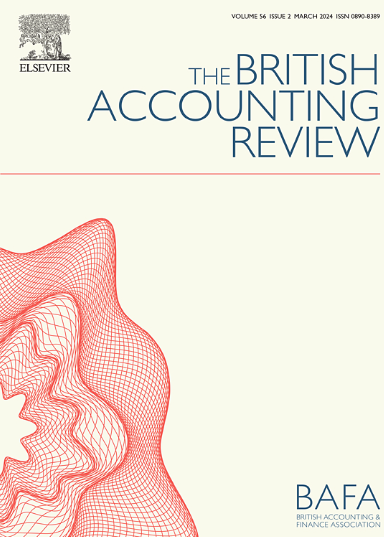金融危机期间企业债务成本的决定因素
IF 9.4
3区 管理学
Q1 BUSINESS, FINANCE
引用次数: 0
摘要
本文采用美国工业上市公司的面板数据,研究金融危机期间特定公司的债务成本(COD)决定因素如何影响不同数量级的债务成本。在啄阶理论的背景下,采用了六个债务成本决定因素:公司规模、公司年龄、盈利能力、杠杆率、流动性和公司价值,以及先进的估计方法:稳健和引导固定效应、偏差校正最小平方虚拟变量(LSDVC)和量化回归。结果表明,公司规模和杠杆率对 COD 有负面影响,而当 COD 高时(90% 量级),流动性对 COD 有正面影响。只有当 COD 极低(10% 数量位数)时,盈利程度才会证实啄食顺序理论,而在全球金融危机(GFC)期间,当 COD 数量位数达到 25% 及以上时,盈利程度则与啄食顺序理论形成鲜明对比。这些发现证实,在金融危机期间,获得资金的实际情况对企业融资决策至关重要。本文章由计算机程序翻译,如有差异,请以英文原文为准。
The determinants of corporate cost of debt during a financial crisis
Panel data from publicly listed US industrial firms is used to investigate how firm-specific cost of debt (COD) determinants impact COD at different quantiles during a financial crisis. Six COD determinants: firm size, firm age, profitability, leverage, liquidity, and firm value, and advanced estimators: robust and bootstrapped fixed effects, bias-corrected least square dummy variable (LSDVC), and quantile regression, are employed within the context of pecking-order theory. The results show that firm size and leverage negatively impact COD, while liquidity positively impacts it when COD is high (90% quantile). The degree of profitability only confirms the pecking order theory when COD is extremely low (10% quantile) and contrasts with the theory for the 25% and above COD quantiles during the Global Financial Crisis (GFC). These findings confirm that the practicalities of access to finance matter during a financial crisis for corporate financing decisions.
求助全文
通过发布文献求助,成功后即可免费获取论文全文。
去求助
来源期刊

British Accounting Review
BUSINESS, FINANCE-
CiteScore
8.60
自引率
3.90%
发文量
39
审稿时长
76 days
期刊介绍:
The British Accounting Review*is pleased to publish original scholarly papers across the whole spectrum of accounting and finance. The journal is eclectic and pluralistic and contributions are welcomed across a wide range of research methodologies (e.g. analytical, archival, experimental, survey and qualitative case methods) and topics (e.g. financial accounting, management accounting, finance and financial management, auditing, public sector accounting, social and environmental accounting; accounting education and accounting history), evidence from UK and non-UK sources are equally acceptable.
 求助内容:
求助内容: 应助结果提醒方式:
应助结果提醒方式:


